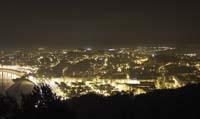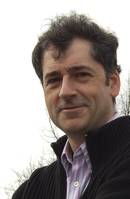Light pollution: a multifaceted problem

A variant of light pollution is light intrusion, that is, the introduction of artificial light in areas other than those intended to illuminate. This phenomenon occurs when poorly oriented and unshielded lighting installations, or of great power, lead the light to the interior of the houses, to the coast or to natural spaces many kilometers from the urban center. The consequences are harmful and varied: glare of pedestrians and drivers, blockade of their vision and consequent reduction of safety; alteration of the nocturnal environmental conditions in nature and affection to the vital functions and balance of the ecosystems of animals and plants; alteration of the human organism that inhibits the secretion of melatonin (circadian rhythm, sleep, growth and prevention of certain types of cancer). Well, all these problems and the disappearance of stars are due to the lack of control of night lighting.
Light pollution is related to the excessive consumption of electricity and the environmental and economic impacts that this entails. When you consume more energy than you need, you have to pay more on the bill of light. Likewise, the pollution produced by the thermal power plants increases without need. In our geographical environment we generate 390 g of CO 2 and 0.42 mg of radioactive waste per kilowatt-hour consumed.
According to studies carried out by the Complutense University of Madrid, in the last four decades the consumption of energy in public lighting in our country is growing steadily by person and year, even well above European average values, such as France or Germany. In the whole of the Autonomous Community of the Basque Country, 280 million kilowatts per year are consumed in public lighting. This means that, in terms of outdoor night lighting, something is wrong here, and it is a reason for alarm, especially in the times of crisis and deficit that we live.
Pilot studies in Basque municipalities
The Aranzadi Society, in collaboration with the EVE and from a plan promoted by the Provincial Council of Gipuzkoa, has carried out a study on public lighting of four locations: Legazpi, Tolosa, Ondarroa, Ibarra. The objective is to analyze the efficiency of current lighting and detect points of pollution and energy waste. In this way, improvements can be proposed that guarantee quality lighting for the entire municipality, avoiding the emission of light to the outside environment and using the powers recommended by the International Lighting Commission. The comparison between the current situation and the predictable one with the proposed changes, yields interesting results such as the reduction of energy consumption, the emission of pollutants and the billing of electricity by 40%.
The four locations are different in size and use different types of lighting, although the results are very similar. This means that the problem is global and that, therefore, the solutions are applicable to the rest of the towns and cities of our country. Thus, there has been a real experience of renovation of public lighting in the urban core of Puente la Reina (Navarra), following the criteria used in these studies. It has been proven that the lighting of the streets can be streamlined, improving energy efficiency and significantly reducing spending.
The application of these results to annual energy expenditure in public lighting allows a reduction in energy consumption in the Autonomous Community of the Basque Country of 112 million kilowatt-hours. This would mean a reduction of 45,000 tons of CO 2 and a saving of 13 million euros on the electricity bill. In addition to public lighting, taking into account the external lighting of the private sector (companies, shopping centers, industrial estates, hotel establishments, shops, advertising posters, etc. ), we would save much more on electricity and pollution.
The case in the Basque Government
This situation of confusion and disproportion in external illumination should be considered and corrected. Lighting should be oriented towards respect for the environment and minimum pollution, while a law that encourages energy efficiency and savings is required. The Basque Government began to develop a law in 2007, but at the end of the legislature it was incomplete. Since 2001, external lighting control laws have been implemented in other communities: Catalonia, Navarre, Cantabria, Balearic Islands, Andalusia.
Now we want to resume this topic in Euskadi. On 19 February 2010, at the request of the Environment Commission, the members of the Aranzadi Society went to the Basque Government (on behalf of Cel Fosc, Association against Light Pollution and five astronomical associations of the Basque Country). The environmental, economic and health problems posed by the current inadequate lighting were exposed. Basic aspects were highlighted to solve the problem of light pollution and achieve optimal energy efficiency in lighting. They stressed that the laws or norms approved so far in other communities do not take into account these basic aspects, in particular those relating to the non-emission of light into the atmosphere and the adjustment of the lighting power. Likewise, the Basque Government was urged that in case of a law for outdoor lighting, the same error is not made, since otherwise the problem will not be solved.






